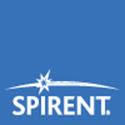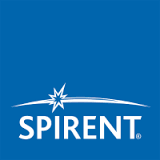Spirent GSS200D is first commercial solution to automate monitoring and analysis of RF interference for critical infrastructure, communications and civil aviation deployments.
Spirent Communications, an industry leader in products and  services for evaluating positioning, navigation and timing (PNT) system robustness, today, announced the launch of GSS200D Interference Detection and Analysis solution. The GSS200D has been developed as part of Spirent’s partnership with Nottingham Scientific Limited.
services for evaluating positioning, navigation and timing (PNT) system robustness, today, announced the launch of GSS200D Interference Detection and Analysis solution. The GSS200D has been developed as part of Spirent’s partnership with Nottingham Scientific Limited.
The GSS200D solution comprises field-based hardware and a secure data server for automatic capture and analysis of global navigation satellite system (GNSS) radio frequency interference. Deployments of GSS200D probes readily provide users with a thorough understanding of the RF interference environment at sites of interest.
Spirent has already detected thousands of disruptive GPS L1 interference events with its global network of GSS100D detectors. By adding support of additional frequencies and constellations, as well as improving the analysis and reporting, the GSS200D responds to the demand of critical infrastructure and civil aviation customers.
“The GSS200D is the first automated solution to identify and securely store multi-constellation GNSS RF interference. The GSS200D data server tools enable trend analysis and event identification over time, as well as re-generation of real world events.” said Romain Zimmermann, product manager at Spirent. “Our solution offers unique value as it enables informed decision making in areas, such as, site selection and approaches to make devices and systems more robust in the face of increasing threats that simply cannot be eliminated. It’s a truly end-to-end test solution which provides access to detected events through to the ability to regenerate and analyse results with real hardware.”
The GSS200D is the world’s first detection system operating simultaneously on GPS, GLONASS and GALILEO in the L1 band. This functionality enables a wide range of users, such as critical infrastructure communications, broadcast and power distribution, civil aviation, road user charging and autonomous vehicles to detect, characterize and classify RFI sources that may affect their services.
Captures of RFI events are logged and stored on PT Cloud, Spirent’s secure cloud infrastructure, allowing the end user confidential access to the results via a web portal. Advanced analytics and reporting features include visualization of both spectrogram and spectrum, as well as characterization of the type and priority of interferences, enabling monitoring over time and in-depth trend analysis. On-premise server options are also available.






